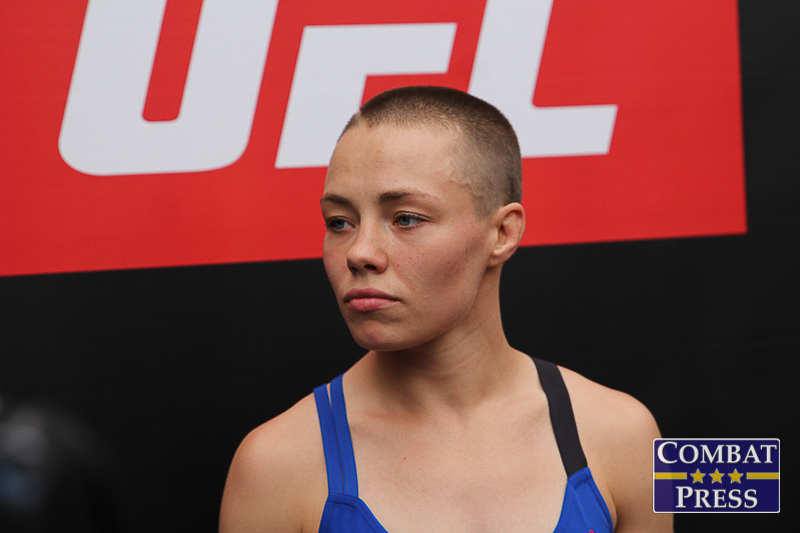When we talk about fighting, we spend a great deal of time focusing on the physical attributes of a fighter. How they stack up in the ring, cage or Octagon. What their reach is and how good they are in specific fighting scenarios.
From time to time, we’ll hear the cookie cutter ‘fight mentality’ terminology. We’ll reference a fighter’s attitude, their enthusiasm, their anger and even their fear. But we often leave it at that.
Pundits and fighters alike rarely go too deep when they talk about the importance of mentality, although some, such as Rose Namajunas, do go out of their way to highlight mental health issues. Hats off to her for that.
So, we’re going to take a closer look at just how important mentality is to a fighter and how they can use unusual approaches such as playing poker to get in the fight frame of mind.
They say a good start is half the battle, right? Well in the case of a fighter that means months of training before a fight. It means analyzing your opponent’s form and figuring out a game plan that should give you the best opportunity for success. This is all the stuff that fight fans know about, but what about building up that mental strength? Let’s see how poker pros handle it.
When it comes to poker players preparing for their big games, it’s all about the mind. Building mental endurance is the priority according to the basics of poker psychology, and it’s what leads many of the top pros to success at the tables. They understand that poker is a logical game composed of skill and a small dose of chance.
They know that controlling your emotions is key to success. They remove all emotions such as anger, fear and frustration from their mind and create a mindset that focuses purely on logical thinking.
This means that when they play, they make decisions that they know give them the best opportunity for taking the win. It’s a simple strategy that reaps the rewards for poker pros.
Good fighters will understand this only too well. They know that they must approach a fight with no emotions clouding their judgment. As we all know, that’s the whole point of baiting a fighter. Throw them off their game by bringing emotions into play. Conor McGregor was once a master of the art, baiting his opponents in press conferences yet becoming completely devoid of emotion once in the Octagon.
Perhaps those fighters he successfully baited would have benefited from adopting a poker mindset prior to the fights? Maybe that’s why Nate Diaz had his number?
For those fighters struggling with controlling their emotions before and during a fight, taking the poker approach could have an incredibly positive effect on their performance. After all, this is real fighting and not the choreographed WWE, where emotions are played up to their highest ebb.
There are plenty of ex-fighters who will tell you that a good fighter will have a “never give up” attitude. Theirs is a do-or-die ethos that sees them leave everything in the ring or the Octagon. Some would even go so far as to say that winning is everything and losing is nothing. But that’s not always the case.
The right fighting mindset is, of course, to always believe in your abilities and to never give in to fear. But we’re not all superhuman and the time will come when even the best of fighters will realize that they’re not indestructible.
The key here is to be able to learn from your mistakes and use that experience to improve your overall skills. To go back to the felt once again, this is what poker players learn from the very beginning. Losing is an opportunity to learn. A chance to identify the weaknesses in your game and to make sure that your opponent cannot exploit them again.
This is why a deep analysis of their progress is essential for a fighter. They need to learn that while it’s okay to make mistakes, it’s not okay to keep repeating them.
Nerves can affect anyone from any walk of life and yes, that includes UFC fighters and professional boxers. The bravado may look great and imply that they’re uber-confident in every way, but when it comes down to it, fighters experience pressure like everyone else does. How they overcome this is to embrace it, as athletes from other sports do.
England cricketer Andrew ‘Freddie’ Flintoff, who once took a foray into boxing, said that during his career he thrived on nerves. He felt that they helped him take in the magnitude of what he was about to do and, as a result, he found he could remain more focused. And he’s not the only one. From poker pros to business leaders, you’ll find countless stories of how people embrace pressure and turn it to their advantage.
Of course, it’s a little different for fighters, as they have the not so small issue of a person wanting to hurt them as much as possible. The threat of physical injury is often enough to get the blood pumping and pile the pressure on, but this is where the controlling of emotions and having that right mindset we mentioned earlier comes into play.
Like Freddie Flintoff, fighters need to learn very early on that they must embrace pressure and use their nerves as a constant reminder that they must remain focused.
As you can see, there’s a lot more to be a fighter than physical prowess and a winning mentality. It’s just as important for a fighter to train their mind as much as their body. To know that their emotions and mindset can have just as much of an impact on their performance as how many hours they spend sparring. It’s all about the fight frame of mind and how to get into it.

